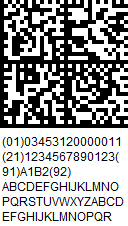
Uzbekistan Traceability: The Introduction Of Mandatory Digital Labeling

As the world is fighting against counterfeiters and making efforts toward enabling the tracking and tracing of pharmaceutical products, Uzbekistan is taking forward the same steps. The Uzbekistan Government, on November 20, 2020, published Decree PKM-737 “Establishment of obligatory digital labeling”. It mandates the serialization of tobacco, alcohol, pharmaceuticals, soft drinks, and appliances. The Uzbek traceability system is known as “ASL BELGISI” which is managed by CRPT Turon. All the drug manufacturers who have a manufacturing or packaging facility within the nation and those who export drugs are bound to implement the digital labeling. And all the companies subject to mandatory digital labeling are required to be connected with the National Information System for monitoring labeling and tracking products.
Specific packaging requirements for pharmaceutical products are defined by the system to be followed by everyone.
For secondary level packaging,
- Medicines and medical devices should be marked in the form of 2D DataMatrix following GS1 standards.
- 01 GTIN (14-digit character)
- 21 Individual Serial Number (13-digit character or alphanumeric sequence)
- 91 Crypto Key (4 characters)
- 92 Crypto Signature (44 characters)

For tertiary level packaging,
- The shipper should be marked with GS1-128 linear barcode
- Product code
- Lot number
- Expiration date
- GS1 SSCC (may appear in a separate barcode)
- 2D code (in some cases)

Recently, the Uzbekistan Government has adopted Resolution N.149 on the introduction of mandatory labeling in Uzbekistan. The products have been divided into four different groups and the separate terms are established for each of the groups for mandatory labeling as follows:
| Group No. | Name of goods | Date from when labeling will become mandatory |
|---|---|---|
| Group 1 | Medicinal products with secondary (outer) packaging (except for orphan) | From September 1, 2022 |
| Group 2 | Medicines with primary (inner) packaging (provided there is no secondary (outer) packaging) (except for orphan) | November 1, 2022 |
| Group 3 (a) | Medicines and medical devices for orphan diseases (according to the list approved by the Ministry of Health) | From March 1, 2023 |
| Group 3 (b) | Medicines included in the register of medicines with foreign registrations, the results of which are recognized in Uzbekistan | From March 1, 2023 |
| Group 4 | Medical products (according to the list determined by the Ministry of Health) | From February 1, 2025 |
The key measures for the transition to a mandatory digital labeling system are:
1. Within 3 years from the date of mandatory labeling for the relevant group – it is allowed to sell medicines and medical devices manufactured before the date of mandatory labeling without labeling.
2. Within 90 days from the date of mandatory labeling for the relevant group – local manufacturers are allowed to certify without mandatory labeling medicines and medical devices manufactured before the mandatory labeling date.
3. Within 180 days from the date of mandatory labeling for the relevant group, foreign manufacturers are allowed to certify and import without mandatory labeling medicines and medical devices manufactured before the mandatory labeling date.
4. Within 12 months from the date of mandatory labeling for the relevant group, foreign manufacturers must either open their representative office in Uzbekistan or conclude an agreement with a local company on the implementation of digital labeling (with the obligatory indication of such a company in the instructions for the medicinal product or medical devices). The functions of the representative office/local company should also include ensuring the payment of fines in case of violation of the mandatory labeling rules.
The other features of the Resolution N.149 are:
1. Foreign manufacturers get access to the digital marking system after receiving a local individual taxpayer number (TIN) and an electronic digital signature (EDS);
2. Interaction on digital marking with foreign manufacturers may be limited in case of 3-time violation of marking rules within 1 year;
3. Until July 1, 2022, the operator of the digital marking system must develop a procedure for recognizing foreign digital markings.
Kevision Systems, part of the Kevin group, is a leading provider of complete solutions and services to protect your products and supplies. We are also a leading Solutions Provider for Vision-Based Inspection Systems for products, especially in the Healthcare, Food & Beverage as well as Automobile Industries. With Global Trade becoming seamless, the need for increased security & traceability of products is imperative for product authenticity. Kevision partners with clients to provide a robust & secure solution to meet product & client safety as well as regulatory compliance.